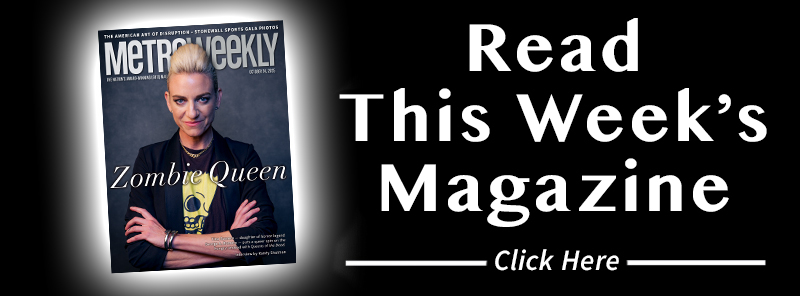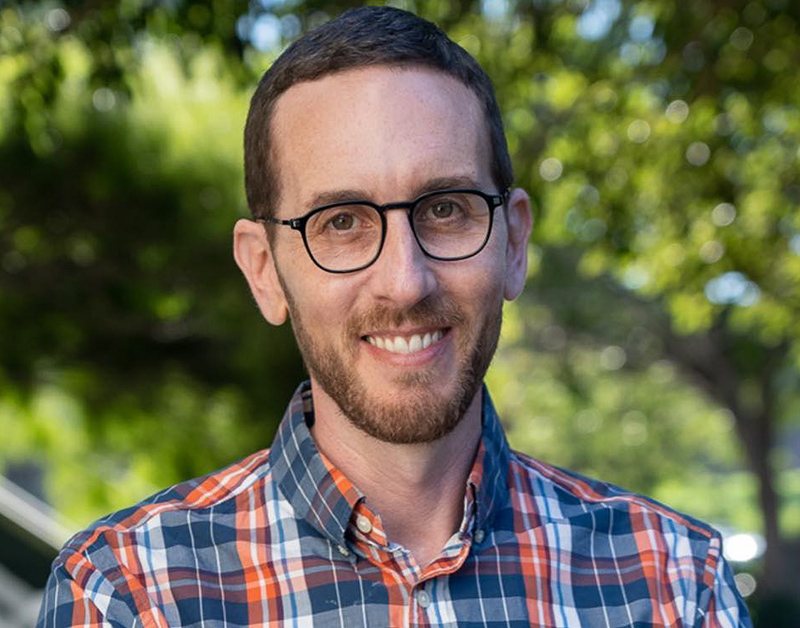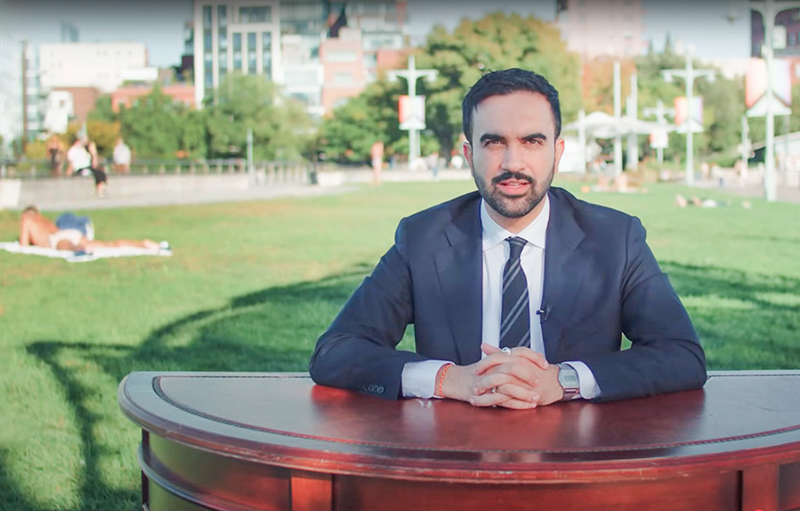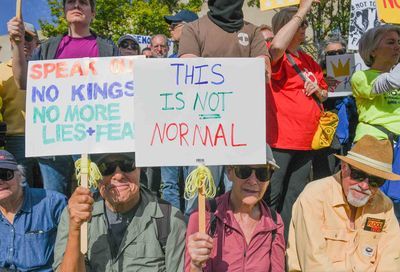274 LGBTQ Candidates Win Their Elections Across the Nation
Tammy Baldwin and Sarah McBride were among the successful LGBTQ candidates, while voters approved pro-LGBTQ ballot initiatives.

Even as Donald Trump romped to victory in Tuesday’s election, there were a few bright spots for our community, with the successes of LGBTQ candidates and ballot initiatives in select states and districts.
The biggest victory of the night was the narrow re-election of U.S. Sen. Tammy Baldwin, a Wisconsin Democrat who managed to overcome a voter backlash against Democrats that swamped presidential nominee Kamala Harris.
Baldwin, a lesbian, will return to the U.S. Senate as its only out LGBTQ elected official, as Sen. Kyrsten Sinema (I-Ariz.), who is bisexual, and Sen. Laphonza Butler (D-Calif.), a lesbian, are stepping down and did not pursue re-election.
The LGBTQ+ Victory Fund celebrated Baldwin’s victory, with President and CEO Annise Parker saying she was “thrilled” by the development. “Wisconsin voters made the right choice to keep their time-tested champion in Washington,” Parker said in a statement.
In the U.S. House of Representatives, the LGBTQ caucus will grow by three members, from 9 to 12, with the additions of Texas State Rep. Julie Johnson, the first out LGBTQ elected member of Congress from the South; Washington State Sen. Emily Randall, the first out LGBTQ Latina elected to Congress; and Delaware State Sen. Sarah McBride, the first out transgender member of Congress.
HRC Texas State Director Melodia Gutierrez celebrated Johnson’s victory as a “historic milestone” and LPAC, the political action committee dedicated to electing LGBTQ women and nonbinary candidates to office, praised Randall’s historic victory.
“As an out lesbian Latina, I will rest better at night knowing that Emily Randall will be fighting for LGBTQ+ equality, racial justice, immigration reform and reproductive freedom in Congress,” Janelle Perez, the executive director of LPAC said.
Meanwhile, the Human Rights Campaign celebrated McBride’s victory, calling her an “effective lawmaker” and a “devoted public servant” who would not only deliver for her constituents but whose presence in the House would reflect an increasing acceptance of transgender individuals in public positions.
All of the currently-serving LGBTQ House members — U.S. Reps. Mark Pocan (D-Wis.), Mark Takano (D-Calif.), Angie Craig (D-Minn.), Sharice Davids (D-Kansas), Chris Pappas (D-N.H.), Ritchie Torres (D-N.Y.), Becca Balint (D-Vt.), Robert Garcia (D-Calif.), and Eric Sorenson (D-Ill.) were re-elected to office.
At the state level, LGBTQ women and nonbinary candidates celebrated historic victories, with Aime Wichtendahl becoming the first openly trans person elected to the Iowa State Legislature by winning a seat in the Iowa House of Representatives.
Additionally, Gabby Salinas became the first LGBTQ woman to serve in the Tennessee state legislature, while Kentucky State Rep. Keturah Herron became the commonwealth’s first-ever genderqueer person elected to the State Senate. All three Democrats will serve in Republican-dominated legislatures in states that have passed a flood of anti-LGBTQ legislation in recent years.
In North Carolina, State Sen. Lisa Grafstein (D-Raleigh) was re-elected and remains the sole LGBTQ member of the upper chamber. Similarly, in Montana, State Rep. Zooey Zephyr (D-Missoula), who was barred from the Montana House of Representatives after a passionate speech decrying efforts to restrict gender-affirming care, was re-elected to her seat in that legislative chamber.
According to the LGBTQ+ Victory Fund, 274 of 477 LGBTQ candidates running this cycle — 57% — won their elections on Tuesday. Meanwhile, 64 — 13% — lost their elections, with the results of races featuring 139 other LGBTQ candidates remaining uncalled as of Thursday afternoon.
Despite Trump’s victory, North Carolina LGBTQ voters were able to breathe a sigh of relief after Attorney General Josh Stein was elected governor, defeating the anti-LGBTQ Lt. Gov. Mark Robinson, who became known for his dehumanizing rhetoric about LGBTQ people.
Robinson was dogged in the last months of the campaign by accusations that he had patronized adult video stores and had written inflammatory, racist, and anti-gay comments on a porn website’s message boards decades ago.
Adam Polaski, the communications and political director for the Campaign for Southern Equality, which works on LGBTQ activism throughout the South, celebrated Robinson’s defeat, saying that voters “soundly rejected the divisive, hateful rhetoric of Mark Robinson” in electing Stein.
North Carolina Democrats also won a House seat in Eastern North Carolina that broke the Republican Party’s legislative supermajority, meaning that Republicans can’t override vetoes from Stein in the future and will be forced to compromise, either with Stein or with Democratic leaders, if they wish to accomplish their legislative priorities.
Tuesday also brought positive news in terms of pro-LGBTQ ballot initiatives. In California, voters approved Proposition 3, which repealed the now-unenforceable ban on same-sex marriage known as Proposition 8.
The 2008 ballot initiative had previously been overturned by federal courts as unconstitutional, and the U.S. Supreme Court had declined to overturn those lower court decisions — leaving only the language on the books. On Tuesday, California voters removed that language from their state constitution by an almost 2-1 margin.
By similar margins, voters in Colorado and Hawaii also voted to remove language from their state constitutions expressly banning same-sex nuptials. Even though both states had already approved marriage equality measures, the outdated language banning such unions remained on the books.
In New York, voters approved Proposal 1, also known as the Equal Rights Amendment. New York’s state constitution will now expressly prohibit discrimination based on ethnicity, national origin, age, disability, and sex, including sexual orientation, gender identity, and pregnancy. The measure also protects the right of people to bodily autonomy and to access reproductive health care services.
While the focus of Proposal 1 was primarily on reproductive health care, opponents of the proposal attempted to defeat it by campaigning against the inclusion of sexual orientation and gender identity as protected classes. Many of those arguments attempted to employ a “trans panic” tactic by claiming that the proposal would infringe on women’s spaces and would allow transgender youth to obtain gender-affirming care without parental consent. In the end, voters approved the measure by 62%-38%.
“New Yorkers have taken a historic step forward by voting to enshrine protections for all our communities into our State Constitution,” Elisa Crespo, the executive director of The NEW Pride Agenda, said in a statement. “At a time when attacks on LGBTQIA+ rights and reproductive freedoms are escalating across the country, New York has chosen to protect our essential freedoms for generations to come.”
Support Metro Weekly’s Journalism
These are challenging times for news organizations. And yet it’s crucial we stay active and provide vital resources and information to both our local readers and the world. So won’t you please take a moment and consider supporting Metro Weekly with a membership? For as little as $5 a month, you can help ensure Metro Weekly magazine and MetroWeekly.com remain free, viable resources as we provide the best, most diverse, culturally-resonant LGBTQ coverage in both the D.C. region and around the world. Memberships come with exclusive perks and discounts, your own personal digital delivery of each week’s magazine (and an archive), access to our Member's Lounge when it launches this fall, and exclusive members-only items like Metro Weekly Membership Mugs and Tote Bags! Check out all our membership levels here and please join us today!






























You must be logged in to post a comment.